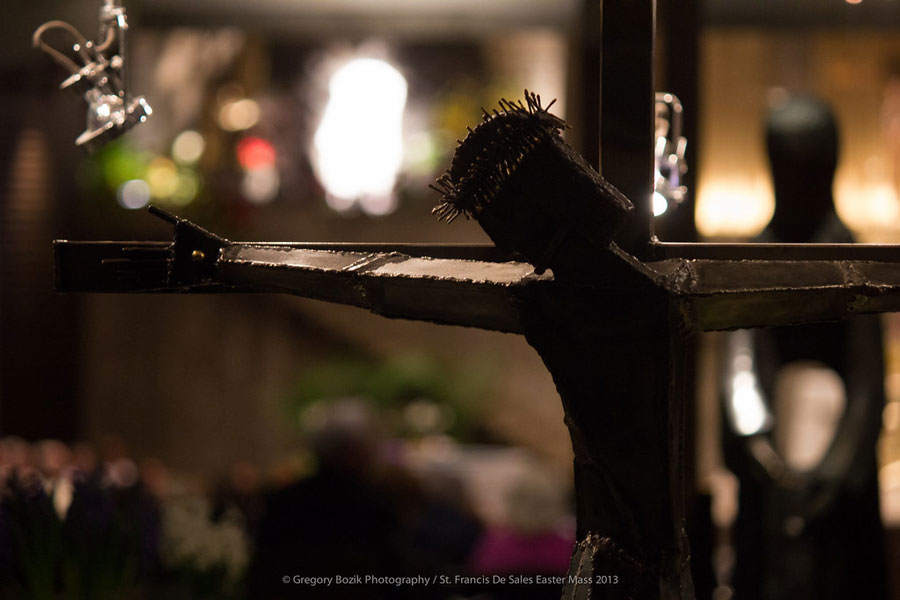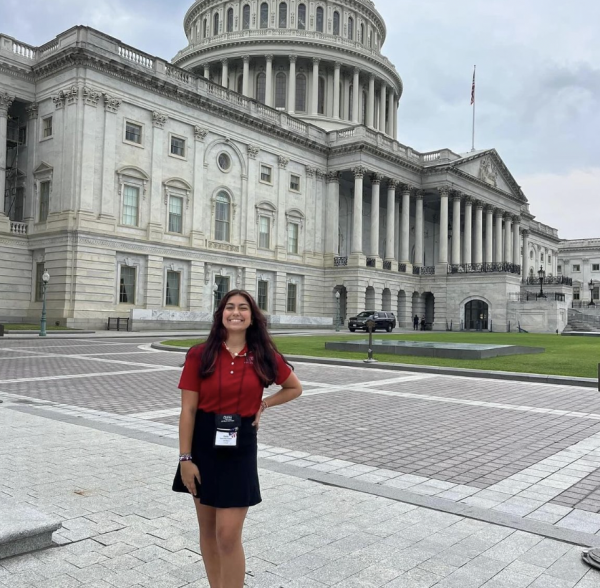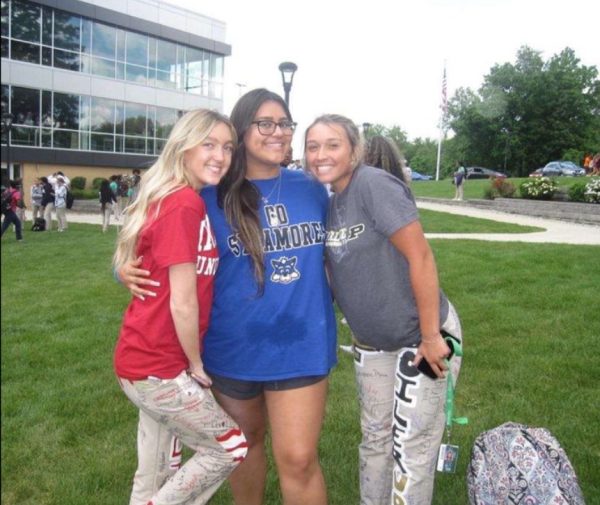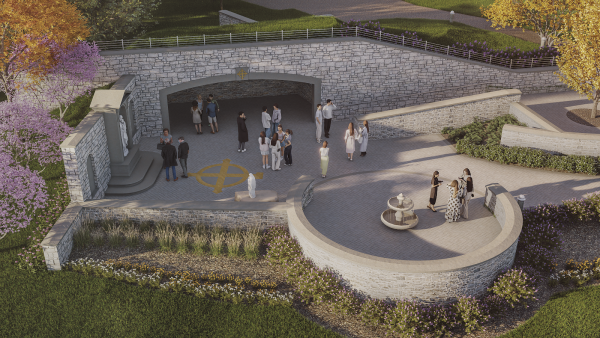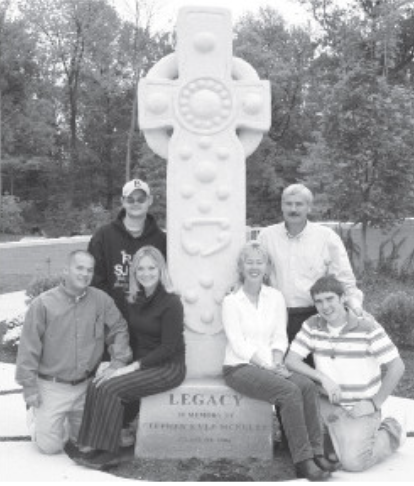Religion teachers explain Easter Triduum
Behringer: This is the pinnacle of the liturgical season
Gbozik Photography/Creative Commons
Several religion teachers provided their perspective on the Easter Vigil.
Regardless of religious beliefs, there is a high probability that most people have heard of or celebrated Easter to some extent. However, religion teacher Mr. Marc Behringer ‘84 said that Easter is more than just one single day; it’s an entire season revolving around the Easter Triduum.
The Easter Triduum includes Holy Thursday, Good Friday, Holy Saturday and Easter Sunday. Behringer said, “The Easter Triduum, sometimes also called the Paschal Triduum, is the pinnacle of the liturgical season for Catholics. Everything about our faith leads up to the Triduum. As Christians, we refer to ourselves as Easter People, so the Triduum includes the greatest holy days that we have in the Catholic Church.”
Days in the Catholic Church do not always align with standard 24-hour days. “(The Triduum) is actually considered a single liturgical day, even though it’s three chronological days.”
Behringer said that Catholics are not required to attend all three days. However, he said, “The Easter Mass is required. The pinnacle of the liturgies is actually the Easter Vigil, which occurs and must occur after the sun has gone down on Saturday.”
Religion teacher Br. Roberto Jimenez said, “On Friday when you come into the Church, it’s darkened. So when you come in on Saturday everything is dark.”
Behringer added, “During the Easter Vigil (on Saturday), when the lights come on, it’s powerful. It’s actions, it’s symbols, everything is together.”
Br. Jimenez noted that all five human senses are active during the celebration.
Behringer said, “It’s a long liturgy because it is that important.” Br. Jimenez added, “But you don’t really feel it if it’s done correctly, because it moves so beautifully.”
Behringer encouraged students to attend any or all of the Easter Triduum services. He said, “We would like for our students to participate in as much of the Triduum as they possibly can. Beginning with Holy Thursday, there is the Mass of the Last Supper. On Friday there is not a Mass. Traditionally, Catholics gather for the Stations of the Cross and they can do the veneration of the Cross in remembrance of the day that Jesus died, particularly paying attention to the hours of noon, the time when Jesus was on the Cross, and 3 (p.m.), the time of his death.
“If our students have not ever gone, our entire (religion) department would highly recommend that the students go to the Easter Vigil. It’s an incredible celebration. It’s a time when new Catholics are brought into the Church. It’s anticipatory. The Mass of Easter is the reason for every other Mass. Every Sunday is considered a ‘Little Easter.’”
Although Easter is considered the most significant holiday in the Catholic faith, parts of the celebration are not fully understood by all Catholics. Behringer said, “I think sometimes what gets left out of Easter is that the whole purpose of Easter is that it’s offered to you, to me, to everyone. It’s not something that happened; it continues to happen. It’s an eternal occurrence. Easter isn’t just a day. It becomes a season. The Easter season ties together not just the Resurrection of Jesus, but also our own Resurrection in, with and through Christ.”
Religion teacher Mr. Cole Hepp agreed and said, “You don’t go to Mass to stay there forever. You go to be filled and encounter Christ and the Resurrected Christ, but then also to go love your Christian life.”
Behringer and Br. Jimenez both called Easter the “wow” of the faith. Behringer said, “I can’t put into words what the Easter Vigil is. It would be doing it a disservice.”
Br. Jimenez said, “If you want a really good celebration, Easter is the best time to go because it is so lovely and alive.”
Behringer added, “To experience all of that would really give our students the best experience of what our faith is all about.”

Ashlynn Bakemeyer is a senior and the co-editor-in-chief of the Megaphone. At Cathedral she is involved in the Best Buddies Club. Outside of school she...


